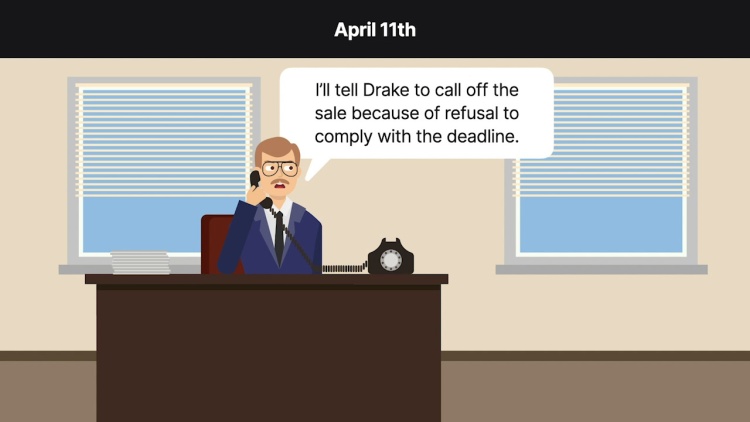Drake v. Wickwire
Alaska Supreme Court
795 P.2d 195 (1990)

- Written by Denise McGimsey, JD
Facts
Paul Drake (plaintiff) signed an exclusive listing agreement with The Charles Hosley Company, Realtors (Hosley) to sell property in North Pole, Alaska. Drake promised Hosley a 10 percent commission if a buyer was secured by March 30, 1984. Hosley found willing buyers, and an agreement was signed on March 23, 1984. The agreement specified that closing would occur within 10 days after evidence of clear title. A sufficient title report was received on April 3, 1984, triggering a closing date of April 12 or 13. Drake wanted to close on April 11, which was communicated to the purchasers by his attorney, Tom Wickwire (defendant). On April 11, Wickwire called Hosley to set up the closing. Hosley indicated that the purchasers had the money but did not want to be pressured to close. Wickwire responded that he would advise Drake to call off the sale because of the buyers’ nonperformance. Wickwire then sent a letter to Hosley dated April 11 in which the offer to sell was withdrawn. Hosley did not receive the letter until April 18. On April 12, Drake sold the property to a different set of buyers, using a different agent. That same day, Hosley submitted the initial buyers’ down payment to Wickwire in order to close the transaction. Wickwire rejected the payment because of the sale to other purchasers. Drake did not pay Hosley a commission. Hosley successfully brought suit against Drake for the promised commission. Drake then sued Wickwire for malpractice on the grounds that Wickwire had negligently advised him that he could terminate the transaction without liability. The trial court granted summary judgment to Wickwire, and Drake appealed.
Rule of Law
Issue
Holding and Reasoning (Matthews, C.J.)
Dissent (Rabinowitz, J.)
What to do next…
Here's why 909,000 law students have relied on our case briefs:
- Written by law professors and practitioners, not other law students. 47,100 briefs, keyed to 997 casebooks. Top-notch customer support.
- The right amount of information, includes the facts, issues, rule of law, holding and reasoning, and any concurrences and dissents.
- Access in your classes, works on your mobile and tablet. Massive library of related video lessons and high quality multiple-choice questions.
- Easy to use, uniform format for every case brief. Written in plain English, not in legalese. Our briefs summarize and simplify; they don’t just repeat the court’s language.





